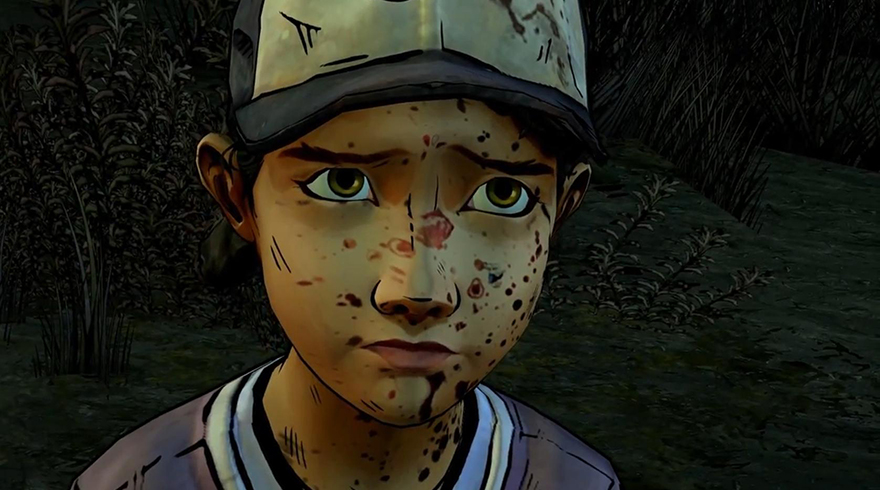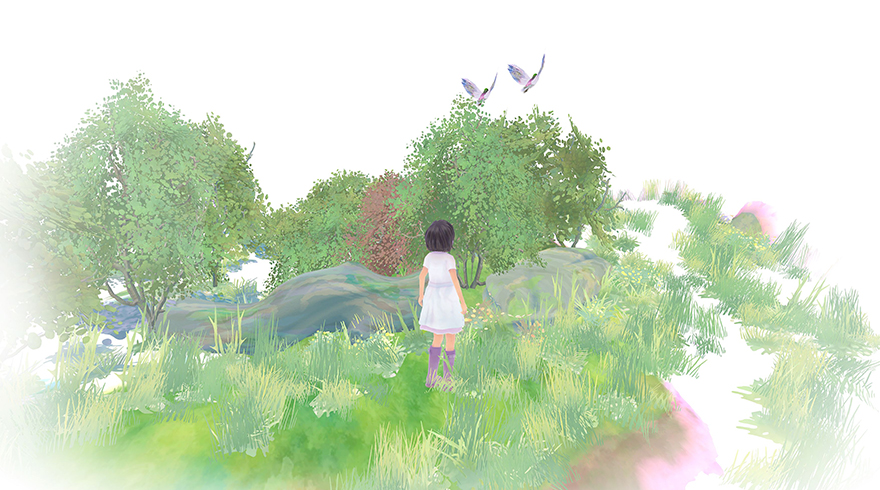Videogames don’t like people. Of that, the overwhelming amount of fantasy, war and sci-fi games, the ones set around goblins, androids and super-soldiers—the ones patently uninterested in real human beings—are proof enough. But even when games profess an interest in personhood and human experience they avoid substantive fiction. Everybody’s Gone to the Rapture seems to focus on a village in England, and the relationships between the people that live there, but the people are all dead and instead of seeing them and how they interact with one another you find, merely, their ghosts and some recordings of their voices. Gone Home is the story of a burgeoning teenage romance, two lovers and the families on either side, but again none of them appear on-screen. The Vanishing of Ethan Carter has no living humans, nor does Dear Esther. All the human interactions in Sunset occur off-screen. SOMA claims to debate human nature but almost every character is a robot. The Talos Principle is the same.

The games ostensibly about people and their experiences present, rather than complex, difficult human characters, simply a facade of human life—rather than conversation, situation or struggle, they center on after-the-fact narratives, inner monologues and second-hand reflections. You encounter humanity in games not in people but through simpler, more tangible non-human vectors. You never speak to people, because people are complicated. Instead, you straightforwardly learn about people through architecture, diaries and robots, objects which can purport an essence of humanity but also be used to conveniently sidestep the pressures and expectations of writing and creating a believable human character. I think videogames, recently, have been largely pretending to be about people. Apart from Will O’Neill, through his game Actual Sunlight, there aren’t many game-makers currently working who seem genuinely interested in telling stories about human beings. On the contrary, there are plenty who wish to appear to be doing so, who spin stories without any people in them, and sell them as human interest.
Child protagonists, seemingly everywhere at the moment, from Beyond Eyes to Among the Sleep, The Unfinished Swan to Papo & Yo, The Walking Dead to Brothers, are symptomatic of this uneasy relationship games have with human beings. The child characters currently in videogames feel to me the same as the robots, ghosts or other non-human humans—they are vectors for simplified, digestible human emotion, a way for writers to appear to engage with personhood and human feelings without actually engaging with either. This isn’t to say that child characters or children in reality are incapable of representing complexity or being complex. It’s certainly not to say that children are anything other than human. It’s only that game-makers at the moment seem to be using children characters as an excuse for timid, slightly but not really emotional narrative, as a way to look involved with difficult human experiences like loss, fear and sadness while in fact keeping them at a safe distance.

The little girl’s cat dies in Beyond Eyes. The world of The Unfinished Swan is slightly cold and ominous. These are minor, slight little stories. Even games supposedly addressing somber topics like death (Among the Sleep), alcoholism (Papo & Yo) and domestic abuse (Brothers) excuse themselves, via their child characters, from delving into the subject matter, each one being so wrapped in metaphor and twee, pleasing imagery that you can forget the games’ stated stories. Brothers is a fairytale. Papo & Yo uses the aesthetic of a child’s imaginary world and friends as cause to never actually show abuse. Among the Sleep is a bait and switch. Its twist ending is token and trite, the perfect example of when game-makers conflate a child’s perspective with prettiness and simplification. Each of these games hints at something emotional, something saddening or bleak or real, but uses the child character to pull back and shield from that subject matter, to process a controversial or contentious topic into one that will elicit from the player only the simplest responses. The endings of these games are either “happy” or “sad”—it always seems that the child characters are intended to eliminate any doubts or lasting questions, and convert complicated real-world issues into easy, satisfying narratives.
As well as a disservice to topics like drug addiction and child abuse, this kind of writing smacks to me of an unwillingness to enter adulthood, of game-makers scared to do battle with human problems and trying to dodge difficult subject matter by persisting with the idea that basic sentimentalism is magical. I personally don’t buy it. I don’t think the easy, simple emotion found in a lot of games with child protagonists has any worth whatsoever. Moreover, I don’t think children are really this simple. My own childhood was never simple, never fully “sad” nor ever truly “happy.” Like life generally, it was complicated—games seem to want to think otherwise, and insist that children are emotionally much simpler than adults. That’s not true. Children suffer. They think. They worry. It’s not a terrifically written game, but The Walking Dead at least features a child protagonist who is, comparatively, complex, who has flaws, worries and emotions beyond those that can be easily compartmentalized. Limbo, too, seems to understand childhood and children. It plays on fear and awe, arguably simple emotions, but it never treats the central protagonist as a rare, beautiful, innocent flower—the many ways in which that young boy can be brutally killed implies a willingness by Limbo‘s creators to grapple with the occasionally harsh reality of childhood, as opposed to the empty, tear-jerking simplicity of something like Beyond Eyes.
Child protagonists feel to me not just a sidestep away from dealing with true adult stories, but the creations of game-makers blindsided by nostalgia. They wish to simplify and make magic frightening human experiences while still appearing narratively confident. In doing so they end up writing child protagonists who are clean, basic and untrue, child protagonists who from my experience must be incredibly alienating to real children.
